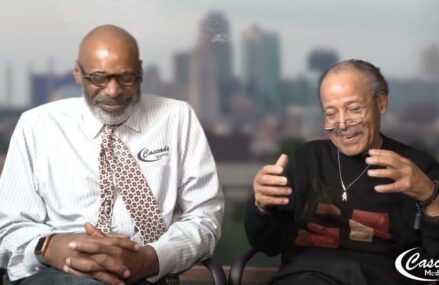SCIENTISTS FIND HINT OF DARK MATTER FROM COSMOS
FILE -In this undated picture made available by NASA, a technician examines the Alpha Magnetic Spectrometer at Kennedy Space Center in Cape Canaveral, Fla.. The cosmic ray detector was mounted on the International Space Station, searched the universe and shall help to explain how everything came to be. CERN , the European Organization for Nuclear Research, released first results of the experiment Wednesday April 3, 2013. (AP Photo/NASA, Glenn Benson)
GENEVA (AP) — A $2 billion cosmic ray detector on the International Space Station has found the first significant hint of dark matter, the mysterious substance that is believed to hold the cosmos together but has never been directly observed, scientists say.
The first results from the Alpha Magnetic Spectrometer, which was sent into space two years ago, show evidence of a new physics phenomena that could be the strange and unknown matter, an international team at the European particle physics laboratory near Geneva announced Wednesday.
Nobel-winning physicist Samuel Ting, who leads the team, said he expects a more conclusive answer within months.
The data is being collected and analyzed at the European Organization for Nuclear Research, or CERN, along the Swiss-French border.
The findings Wednesday are based on seeing an excess of positrons — positively charged subatomic particles. Since the 7-ton AMS magnetic detector began studying cosmic ray particles in space, it found about 400,000 positrons whose surging energies indicate they might have been created when particles of dark matter collided and destroyed each other.
The first results from the detector are significant, because dark matter is thought to make up about a quarter of all the matter in the universe. Unraveling the mystery of dark matter could help scientists better understand the composition of our universe and, more particularly, what holds galaxies together.
“This is an 80-year-old detective story and we are getting close to the end,” said University of Chicago physicist Michael Turner, one of the giants in the field of dark matter. “This is a tantalizing clue and further results from AMS could finish the story.”
___
Science writer Seth Borenstein contributed to this report from Washington.



